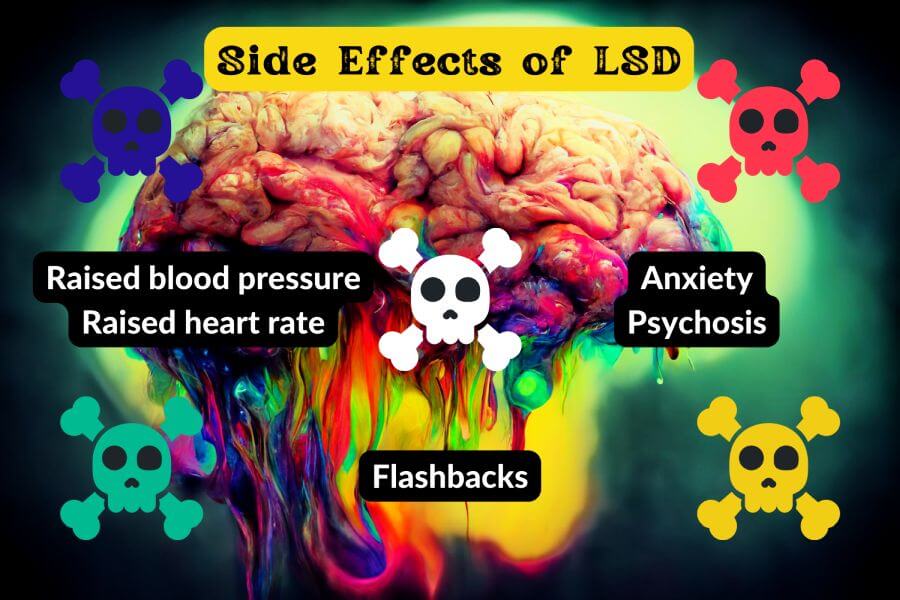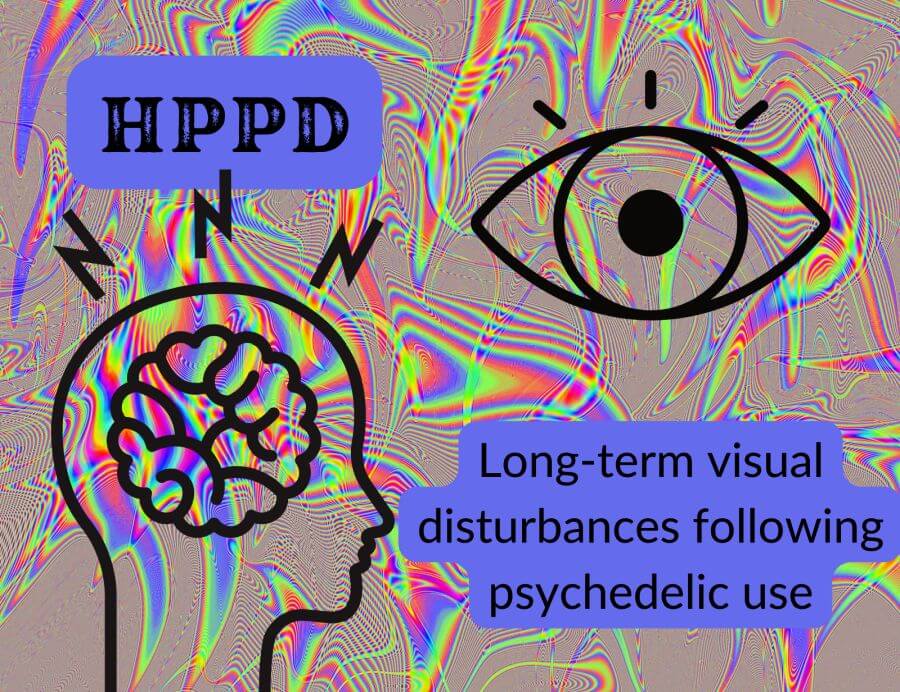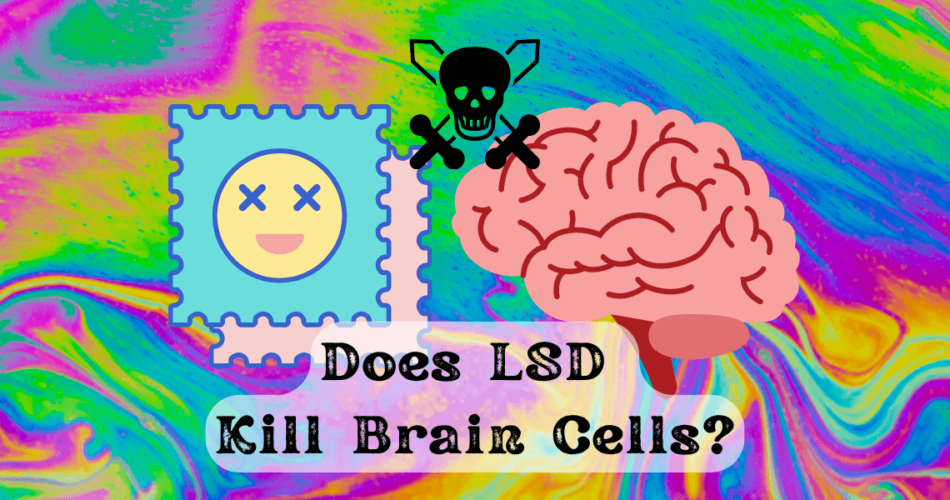LSD, also known as acid, is a powerful psychedelic drug that has been popularized for its mind-altering effects. While it does have the potential to cause some temporary mental changes, does LSD kill brain cells or fry your brain? The answer is not simple. Read on to learn more.
TL;DR
- No, there is no evidence that LSD kills brain cells 🧠
- However, it does have long-term effects, which can be positive or negative ⚠️
- Prolonged use of psilocybin or LSD may cause HPPD (Hallucinogen-Persisting Perception Disorder), which is characterized by flashes of visual disturbances ⚠️
Does LSD Kill Brain Cells, Really?
LSD is a powerful psychedelic that definitely does affect your brain. Acid trips involve hallucinations and intensified emotions, thoughts and sensory perceptions. The effects of LSD on the brain have been studied for over 60 years, yet the answer to the main question remains elusive. Some common side effects of the substance include:
- increased heart rate and blood pressure;
- anxiety;
- psychosis;
- flashbacks;
- anxiety attacks.

It’s not a myth that many drugs can harm your brain, but does LSD kill brain cells? The short answer is this: there is no scientific evidence to suggest that lysergic acid diethylamide kills brain cells. However, researchers have found that long-term use of the drug can lead to changes in the way neurotransmitters are released and received by the brain.
The Good and the Bad 🔍
A 2017 study found that a single dose of LSD can improve the user’s mood for 12 months or longer. It’s often reported to be a powerful spiritual experience that enhances quality of life. On the other hand, frequent LSD use has been associated with panic attacks, psychosis and other adverse psychological effects.
“Permafried” Brain and Brain Damage
The term “permafried” is often used to describe the effects of certain drugs on the mind. But does LSD kill brain cells? Again, there is no scientific evidence to suggest that taking LSD in fact permanently changes the brain. However, the myth that LSD can cause permanent brain change is based on the fact that serotonin receptors in the brain are affected by serotonin-releasing drugs like LSD.
This means that long-term use of these drugs can lead to a downregulation of serotonin receptors, which can result in changes to how serotonin is released and received in the brain. It can lead to negative health conditions, and acid abuse can develop mental health disorders. Long-term side effects of the hallucinogens like LSD include an increased risk of developing psychosis or HPPD.
HPPD: Long-Term Effects of Psychedelic Substance Use
HPPD (Hallucinogen Persisting Perception Disorder) is a condition in which people have ongoing flashes of visual disturbances that can last for months or even years after taking the drug. This is a rare condition, but can be a serious mental health issue if it does occur.
So, does LSD kill brain cells or fry your brain? While there is no evidence to suggest that it does either of these things, the long-term use of the drug does have the potential to cause HPPD, which is the only known long-term effect of a “parmafried” brain.

Warning ⚠️
People who have anxiety, schizophrenia, tinnitus, ADHD, and eye floaters in their family history (or currently) may be at higher risk of experiencing HPPD when using LSD.
Does LSD Cause Brain Damage? The Bottom Line
LSD is a powerful psychedelic drug, and its potential effects on the brain are still not fully understood. Does LSD kill brain cells? While there is no evidence to suggest that LSD kills brain cells or causes permanent brain damage, it can have serious long-term mental health implications.
On the other hand, LSD enhances communication between different regions of the brain and the hallucinogenic drugs can have positive benefits in some people. Regardless, it’s important to understand the risks and potential long-term effects.
Similar Posts:
- Long Term Effects of Shrooms (Psilocybin)? Magic Mushrooms
- How to Tell If Someone Is On LSD? Signs of LSD Abuse and LSD Addiction
- LSD and SSRI | Is It Safe to Take Psychedelics With SSRIs?
- How Safe Is LSD? An Overview
- Shrooms vs. Acid: What Are the Similarities and Differences Between Magic Mushrooms and LSD (Acid)?
- LSD Detox in a Nutshell: Stopping Use and Treating Addiction
- Does LSD Make You Smarter? Can LSD Promote Learning and Memory Skills?




